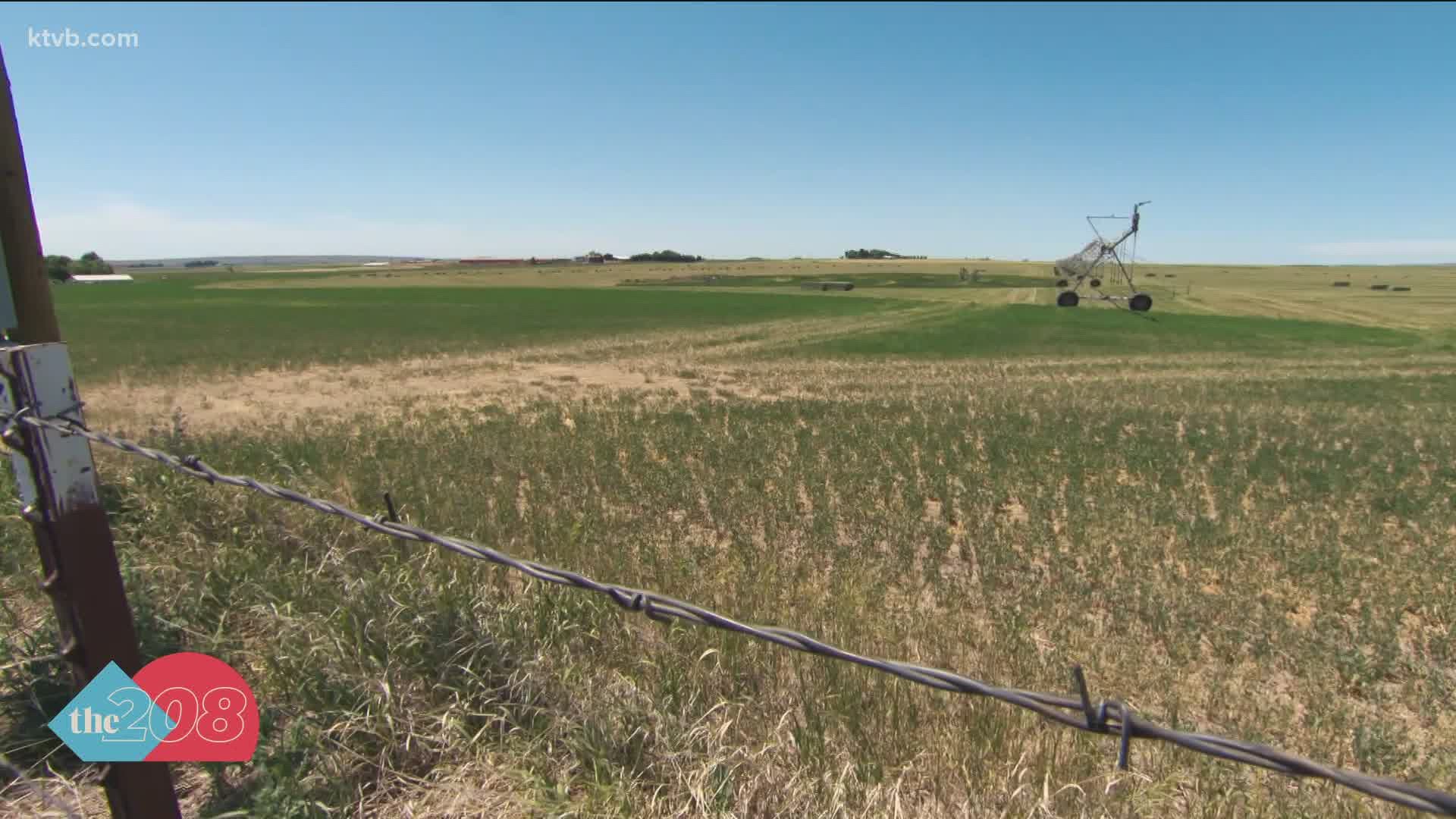LINCOLN COUNTY, Idaho — While Idaho is seeing an early start to fire season, many areas across the state are not experiencing severe heat or fires at all. However, conditions across Idaho may get worse in terms of drought conditions.
The Treasure Valley has seen nine days of measurable rainfall over the last three months. In addition to the lack of precipitation, hot temperatures are already overwhelming the area and a string of triple-digit days are in the near future.
June has already tallied temperatures that are 6.5 degrees above average for this time of year.
The early heat may be directly responsible for one-third of Idaho experiencing a severe drought. A shared area between Custer and Blaine counties is experiencing the worst drought statewide.
Effects from the drought are being felt by residents of that area, specifically the water users of the Big Wood River Canal company and the Magic Reservoir. The two companies have no had water for their crops in two weeks, which has effectively ended the growing season.
The drought makes this season the shortest in over seven decades, which could have generational consequences for farmers in Lincoln County.
Robin Lazamiz is a barley farmer in Shoshone. His crop is one of many that has been affected by the decreased water supply. Because there is no water, there is no chance for his crops to continue growing.
Reluctantly, Lazamiz will green chop his barley field in June instead of August in order to provide feed for his dairy. Last year, he sold his barley to Anheuser Busch to make beer.
"So it goes from a crop that produces $125,000 worth of income to us, to a crop that is basically lettuce," Lazamiz said. "It's a filler worth about $25,000."
All of this is happening because the area has not seen water since June 10, the day the Big Wood Canal company cut off the water to this area.
"It's sad, it's really sad. It's devastating is what it really is," Lazamiz said.
The Lezamiz Dairy in Richfield was started by his father in 1960. Today, there are 500 Holstein cattle who eat and rely on what robin grows on his other 1500 acres.
This would normally come as bales of Alfalfa being cut for the first time. This year, however, the farm is forced to sacrifice quality for quantity and make the first cut early.
It will likely be the last of the season.
"The worst part is what it does to you financially," Lazamiz said. "Last year we sold over $250,000 worth of hay. This year I'm looking at buying $250,000 worth of hay, so a $500,000 swing right there. We stand to lose over a million dollars this year and it's kind of like going to work knowing you're going to lose a million dollars."
Join 'The 208' conversation:
- Text us at (208) 321-5614
- E-mail us at the208@ktvb.com
- Join our The 208 Facebook group: https://www.facebook.com/groups/the208KTVB/
- Follow us on Twitter: @the208KTVB or tweet #the208 and #SoIdaho
- Follow us on Instagram: @the208KTVB
- Bookmark our landing page: /the-208
- And we also turn each episode into a podcast on Podbean
- Still reading this list? We're on YouTube, too:

